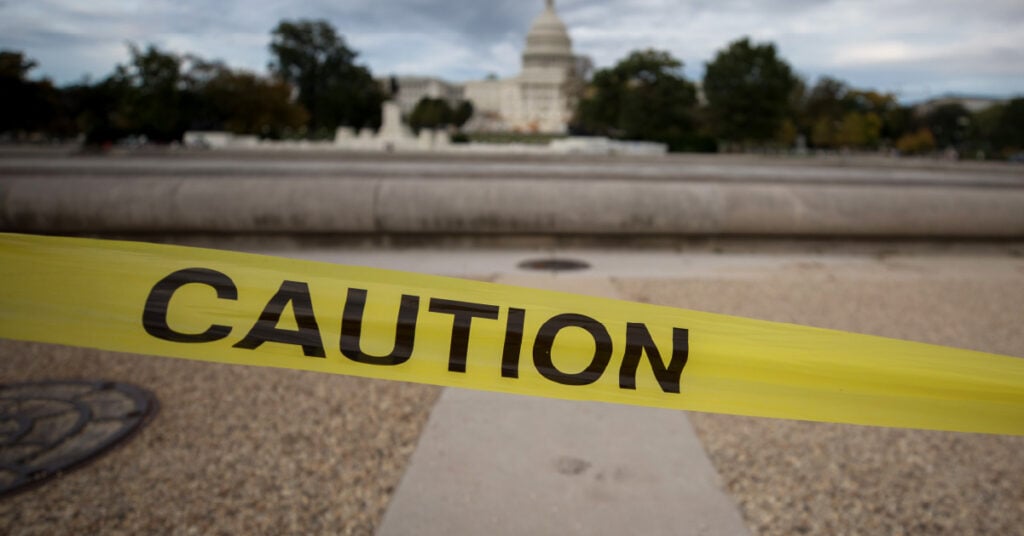States use the final hours of their legislative sessions to address deficits and preserve revenue in preparation for the times ahead. Illinois lawmakers raised more than $1 billion in new taxes, citing implications from the federal budget bill as reason to raise revenue. Louisiana senators pushed back on expanding the state’s voucher program and rejected multiple proposals to cut taxes considering the state will already face a half-billion-dollar deficit in the coming years. Lawmakers in New Hampshire and North Carolina are considering next steps in the face of shortfalls and falling revenue projections.
Meanwhile, despite uncertainty and the potential for forced state action, lawmakers in Oklahoma and Ohio could take or propose steps to cut taxes, reduce revenue and make their tax systems less equitable.
For all of you concerned about state tax implications from the federal budget bill, take a look at ITEP’s new blog that covers five concerning provisions of the bill that states should watch.
Major State Tax Proposals and Developments
-
CONNECTICUT Gov. Ned Lamont is expected to sign the $55.8 billion biennial budget after lawmakers agreed on proposals that include a $250 boost for EITC-eligible filers with children and dependents and the elimination of the $2.5 million combined unitary reporting cap. – MARCO GUZMAN
- DISTRICT OF COLUMBIA Mayor Muriel Bowser shared her fiscal year 2026 budget, which cancels a planned Child Tax Credit and scheduled sales tax increase. Her plan would also slightly reduce the payroll tax for universal paid leave from 0.75 percent to 0.72 percent and cut Medicaid eligibility and TANF benefits. – MARCO GUZMAN
- Lawmakers in ILLINOIS ended session with $1 billion in new tax revenue. Key elements of the tax changes include a new 45 percent tax on tobacco and vaping products, a new per-wage tax on online sports betting, and a higher (50 percent) Global Intangible Low-Tax Income or GILTI tax on profits moved offshore. The plan also amends state law to tax sales from any corporation that does business in the state and not solely businesses with a physical presence in Illinois. – NEVA BUTKUS
- The OHIO Senate introduced a budget proposal that would shift the state’s graduated-rate personal income tax to a flat 2.75 percent tax in 2026. The proposed cut is estimated to cost the state more than $1 billion and overwhelmingly benefit the wealthy. The proposal would also slightly expand the homestead exemption for seniors and people with disabilities by increasing the income threshold, increasing the standard deduction and the enhanced homestead exemption for veterans with disabilities. – MILES TRINIDAD
- OKLAHOMA Kevin Stitt signed a 0.25 percent reduction in the state’s personal income tax into law. The bill then implements a series of triggered cuts that will eventually lead to the elimination of the state’s income tax. Although the initial cost is $350 million, the bill puts the state budget on an autopilot of continual decline. – ELI BYERLY-DUKE
State Roundup
- As the General Assembly considers possible tax proposals, the DELAWARE House Speaker said there are tax equity issues in the state that need to be addressed. She also cited economic uncertainty as a reason to delay pursuing new tax increases, including Gov. Matt Meyer’s proposal to raise personal income taxes on the wealthiest Delawareans. Our latest blog post highlights why now is the time to take action and raise revenue.
- FLORIDA lawmakers are still in dispute over tax cut proposals. While the House and Senate seem to agree over the elimination of the tax on rents paid by businesses, disagreement remains over cuts to property taxes – favored by Senate leadership and the governor – or cuts to the state sales tax favored by House leadership.
- Session wrapped in ILLINOIS last week with no fix to the transit funding issues in the Chicago area. Three transit agencies in northeast Illinois – the Chicago Transit Authority, Pace, and Metra – need $700 million to maintain services, and the funding proposal included increased taxes on electric vehicle charging, real estate transfers, rideshares, as well as higher tolls and a reorganization of the share of suburban sales taxes. Without the injection of new funds, the three agencies may be forced to cut service by up to 40 percent.
- LOUISIANA Senators rejected two measures to reduce the state’s personal income tax rate and general sales tax rate. The bills would have increased the state’s shortfall to $1.2 billion by 2028. Senate Revenue and Fiscal Affairs Chairman Franklin Foil, a House member in 2008, recalled when lawmakers passed significant tax cuts just before the Great Recession and cited this as a reason for the committee’s skepticism of pushing the tax cuts through.
- Meanwhile, LOUISIANA’s Senate Finance Committee scaled back the governor’s proposed expansion of LA GATOR which is the new private school voucher program. While Gov. Jeff Landry and House members allocated $94 million to the program for this coming budget year, the Senate initially proposed rolling this back to $50 million but instead slashed it to $43.5 million and expressed concerns over runaway costs from voucher programs in other states.
- NEBRASKA’s budget negotiations wrapped up without major tax changes. The revenue shortfall was plugged with funding cuts and funds from reserve accounts. Lawmakers did create a new school finance commission that will include representatives of multiple stakeholder communities – lawmakers, the governor’s office, the education and property tax commissioners, educators, and private citizens – and will work on an ongoing basis to suggest improvements to the school finance system. They also voted to allow tax-free college savings accounts (529 plans) to be used for private and religious K-12 schools, circumventing voters’ rejection of previous attempts to funnel public dollars to private schools.
- Faced with lower projected business tax revenues, NEW HAMPSHIRE lawmakers are considering increasing fees in the state budget. Some proposed fee increases include driver’s license fees, vehicle registrations, development and business fees, and agricultural produce registrations.
- Tax changes are coming to New York City’s MTA service region. Legislators in NEW YORK amended the region’s mobility payroll tax to lower tax rates on small businesses and raise them on larger businesses. The changes are expected to raise $1.4 billion annually.
- NORTH CAROLINA budget analysts reduced revenue projections for the next three years, citing concerns of an economic slowdown and tariffs from federal trade policy. For fiscal years 2025-26 and 2026-27, the revenue projections have been reduced by $218 million and $222 respectively.
- TEXAS lawmakers passed their biennial budget which includes $51 billion of extended and new property tax cuts – partially paid for by the state’s budget surplus. Around $45 billion of that amount is to continue existing cuts that have been renewed repeatedly since 2019. The rest will be sent to school districts to replace lost property tax revenue and for an increase in the state’s homestead exemption.
- Negotiations between the WISCONSIN legislature and governor over the state’s budget have broken down. With about a month remaining before their budget deadline, the legislature looks likely to pass a budget with spending reductions and tax cuts, parts of which will likely be vetoed by the governor.
What We’re Reading
- Oklahoma Policy Institute’s Aanahita Ervin breaks down the threat of automatic tax cuts in She describes the history of big fiscal challenges after irresponsible trigger laws, which keep lawmakers from responding to changing economic circumstances.
- Fair Share America compiled statements from state and local leaders expressing concerns over the impact that the federal budget bill will have on their state finances.
- An opinion piece in Florida’s The Palm Beach Post argues that state lawmakers are paralyzed over competing tax cut proposals despite not being able to afford any of them after federal cuts trickle down to the states.
- ITEP’s Kamolika Das highlights provisions of the federal tax and spending bill that threaten local governments.
If you like what you are seeing in the Rundown (or even if you don’t), please send any feedback or tips for future posts to Aidan Davis at [email protected]. Click here to sign up to receive the Rundown via email.




